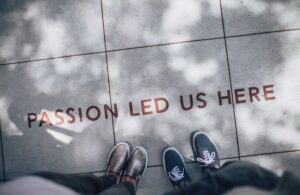Connecting the dot between lasting companies and lasting religions
by Elias Moses
There is one vital connect that I see between the earlier religious missionaries who went about proclaiming faith across oceans and entrepreneurs who built mighty businesses across the globe. That is ‘a strong belief accompanied by a symbol (brand) under that belief system.’
 In earlier schools of business learning, I was taught that entrepreneurial journey is being passionate about what one does. We were thrusted with list of entrepreneurs who were passionate in their idea. I used ask myself, ‘Passion can perhaps help one excel, but can pure passion last a business or even build a company that passes from generation to generation?’ Passion can give you the entry or lead, but not sustain it.
In earlier schools of business learning, I was taught that entrepreneurial journey is being passionate about what one does. We were thrusted with list of entrepreneurs who were passionate in their idea. I used ask myself, ‘Passion can perhaps help one excel, but can pure passion last a business or even build a company that passes from generation to generation?’ Passion can give you the entry or lead, but not sustain it.
What has made successful business people was not mere passion, and there again, what sets them far apart from the rest is not mere passion. There is something more than that. Entrepreneurs who discover that succeed eventually.
As I grew up learning more about businesses and their implications, and getting to know more about their lasting mechanisms, I realised that it is not so much passion or even a mere mission statement that sets an entrepreneur apart from the rest.
 This is how I see it. “A true entrepreneurial legacy is that which stems from a missionary vocation, often propelled by a strong vision for the future, and that too is imbibed by strong belief that can be preached, translated, assimilated and lived, and passed on from one generation to the next.”
This is how I see it. “A true entrepreneurial legacy is that which stems from a missionary vocation, often propelled by a strong vision for the future, and that too is imbibed by strong belief that can be preached, translated, assimilated and lived, and passed on from one generation to the next.”
Let me explain.
Two things that made every religion significant were ‘belief and its accompanied symbolism.’ Symbols became living expressions of the belief system. When it comes to successful and lasting companies, I see a similar trend, ‘A company with a strong belief system with its accompanied symbolism’
BELIEF – a company with a strong belief system that is translated by its core values and mission statement
SYMBOL – a company with a brand ( A symbol that is translated its belief system).
Given this background, we can say that Google is not just a business but a religion, so too apple and Walmart. The men who created them and people who work in them, may not acknowledge, but it is so. Each lasting and successful company follows set of rules (commandments from religious context) and they evangelise through social and other media, and often translate them into their business strategies. And these translated ethos form the company culture over a period of time.
Patrick Bet-David makes a reference on the importance of belief that helps companies last in his book ‘Your Next Five Moves.’ He says, “ I believe in the same things, and this belief energizes my company. It helps sustain us when things are tough, and it emboldens us when things are going well. True believers are formidable, so whatever entrepreneurial venture you create, make sure that you and your people are united by a common belief.”
 Having a great business idea is not enough. That Idea needs to be translated into a belief and that every one believes it in the company. Having talented people isn’t good enough, even ordinary people imbibed by a strong belief can work miracles for the company. Strategies are processes are important, but people weigh far above them. If the talented people in the company are not imbibed by company’s core values in word and action, namely stemming from organizational belief system, the company will never reach its full potential.
Having a great business idea is not enough. That Idea needs to be translated into a belief and that every one believes it in the company. Having talented people isn’t good enough, even ordinary people imbibed by a strong belief can work miracles for the company. Strategies are processes are important, but people weigh far above them. If the talented people in the company are not imbibed by company’s core values in word and action, namely stemming from organizational belief system, the company will never reach its full potential.
One may have the best of resources, but if the company does not have shared values stemming from a strong belief system, no entrepreneur, no matter how smart he or she is, can sustain its legacy.
Elias Moses is a Senior Business Strategist, Consultant, Researcher, Corporate and Leadership Coach, Orator, Columnist and an Entrepreneur. He is also the Founder and Managing Director of a growing reality firm in south India. He is also the founder of Managing Next, an Online portal for knowledge share and Management Consulting.
The author can be contacted@
email: elias@managingnext.in, linkedin: www.linkedin.com/in/eliasmoses
